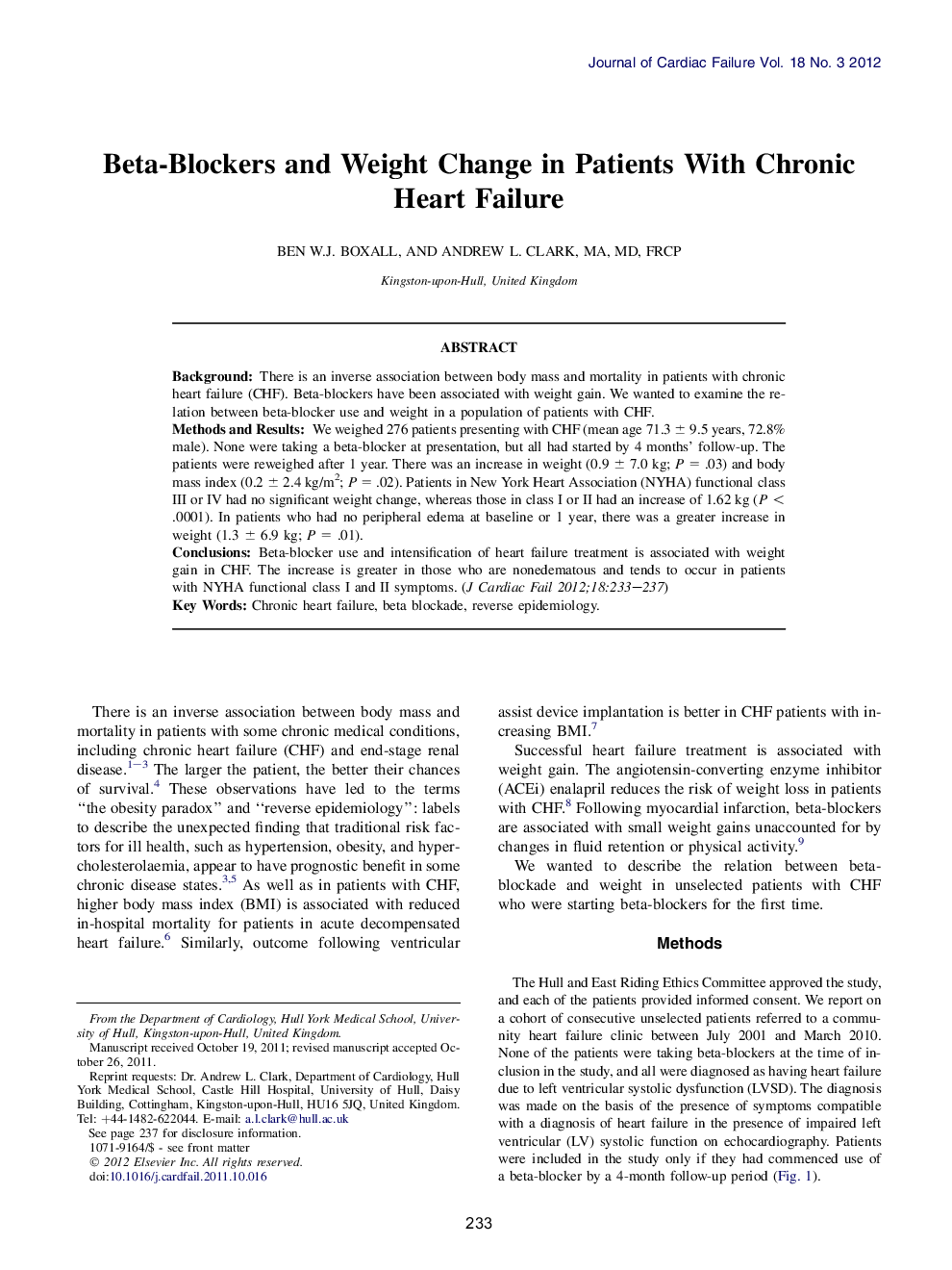| Article ID | Journal | Published Year | Pages | File Type |
|---|---|---|---|---|
| 5983833 | Journal of Cardiac Failure | 2012 | 5 Pages |
BackgroundThere is an inverse association between body mass and mortality in patients with chronic heart failure (CHF). Beta-blockers have been associated with weight gain. We wanted to examine the relation between beta-blocker use and weight in a population of patients with CHF.Methods and ResultsWe weighed 276 patients presenting with CHF (mean age 71.3 ± 9.5 years, 72.8% male). None were taking a beta-blocker at presentation, but all had started by 4 months' follow-up. The patients were reweighed after 1 year. There was an increase in weight (0.9 ± 7.0 kg; P = .03) and body mass index (0.2 ± 2.4 kg/m2; P = .02). Patients in New York Heart Association (NYHA) functional class III or IV had no significant weight change, whereas those in class I or II had an increase of 1.62 kg (P < .0001). In patients who had no peripheral edema at baseline or 1 year, there was a greater increase in weight (1.3 ± 6.9 kg; P = .01).ConclusionsBeta-blocker use and intensification of heart failure treatment is associated with weight gain in CHF. The increase is greater in those who are nonedematous and tends to occur in patients with NYHA functional class I and II symptoms.
